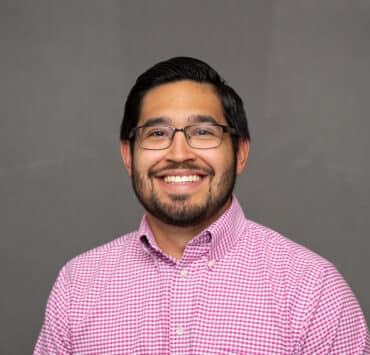|
Getting your Trinity Audio player ready...
|
When our mental health is compromised, it can affect all aspects of our lives, including our physical health, relationships, career, and overall quality of life. Conversely, when we are mentally healthy, we can better manage stress, cope with challenges, and maintain positive relationships with others. We are also more productive, creative, and motivated to pursue our goals. We lead better too.
Unfortunately, Latino and Hispanic individuals struggling with their mental health often don’t have access to treatment. According to the National Alliance on Mental Illness (NAMI), “Hispanic communities show similar vulnerability to mental illness as the general population, but they face disparities in both access to and quality of treatment. More than half of Hispanic young adults ages eighteen and twenty-five with serious mental illness may not receive treatment. . . . [And] only 35.1 percent of Hispanic/Latinx adults with mental illness receive treatment each year compared to the US average of 46.2 percent.”
NAMI goes on to explain how the lack of treatment for mental illness puts our communities at a higher risk for more severe and persistent forms of mental health conditions because, without treatment, mental health conditions often worsen. Therefore, awareness, prevention, and maintenance are key tools our communities must embrace.
In recognition of National Mental Health Month, we are sharing some examples of mental health as well as tips to help you improve and maintain it.
“Remember to make yourself your number one priority; know that when you are well, others will also be well.”
– Jeff Marquez and Rocío Pérez
What Is Mental Health?
Mental health is a complex and multifaceted concept encompassing a range of emotional, psychological, and social factors. It is so much more than the absence of mental illness; it involves the presence of positive mental states like happiness, contentment, and resilience.
It is a state of being that allows individuals to enjoy life, cope with stress, relate to others, and make meaningful contributions to society. Here are five concrete examples of mental health:
- Emotional regulation: the ability to manage and regulate our emotions effectively
- Resilience: the ability to bounce back from adversity and cope with challenging situations
- Positive self-esteem: the ability to feel good about ourselves and our abilities
- Adaptability: the ability to adjust to changes in our environment and circumstances
- Empathy: the ability to understand and relate to the feelings and experiences of others
How Self-Reflection Supports Healthy Mental Health
Self-reflection is a powerful tool for improving mental wellness and aiding personal growth. By reflecting on our thoughts, beliefs, and behaviors, we can gain insight into what may be holding us back or causing stress. By identifying these areas, we can reframe our thoughts, engage in self-care practices, and develop healthy coping mechanisms to manage stress and improve our overall wellbeing. Here are three reflective questions that can help individuals move forward:
1. How can you reframe negative thoughts and beliefs into positive and empowering ones?
2. How do you incorporate additional self-care practices into your daily routine?
3. How do you develop healthy coping mechanisms to manage stressors effectively?
“Hispanic communities show similar vulnerability to mental illness as the general population, but they face disparities in both access to and quality of treatment.”
– National Alliance on Mental Illness
10 Tips for Living a Mentally Healthy Life
Practicing healthy habits such as mindfulness, exercise, and self-care can improve and help us maintain our mental health. Here are more suggestions you can incorporate into your daily life:
1. Practice mindfulness: take time to be present and focused on the moment
2. Exercise regularly: adopt regular physical activity to improve mood and reduce stress
3. Get enough sleep: aim for 7 to 9 hours each night
4. Eat a healthy diet: adopt a balanced diet to help improve mood and energy levels
5. Connect with others: maintain positive relationships with friends and family
6. Practice self-care: take time for yourself to do things you enjoy
7. Manage stress: find healthy ways to manage stress, such as meditation, yoga, or deep breathing
8. Seek help when needed: don’t be afraid to pursue professional help if you struggle with mental health issues
9. Set realistic goals: determine achievable goals for yourself and celebrate your accomplishments
10. Practice gratitude: focus on the good things in your life and express gratitude for them
And overall, remember to make yourself your number one priority; know that when you are well, others will also be well.
The views expressed in this article are those of the author and do not necessarily reflect the position of Hispanic Executive or Guerrero Media.
Rocío Pérez, is a serial social entrepreneur and the creator of The MindShift Game®, TV host of The MindShift Game®, and host of Rompiendo Barreras con Rocío Pérez podcast. She helps individuals take more courageous, consistent actions, build their confidence, expand their vision, step into their power, and elevate their energy. As a leader and trainer in diversity, equity, and inclusion, she has designed, developed, and delivered customized (virtual, in-person, and hybrid) programs globally. A dynamic bilingual, bicultural leader, Rocío has nearly three decades of helping others to live a fulfilled life. She can be reached at [email protected] or (303) 587-8367.
Jeff Marquez, founder of Marquez Leadership, Culture & Strategy, LLC, helps business, government, and nonprofit leaders increase their impact and value to their team, boss, peers, and customers. A retired Army officer and former senior executive with the federal government, he served on the National Security Council as the director of continuity policy and acting senior director for response policy. He led the team that developed the successful US drawdown from Iraq in 2011. In Hawaii, he led the transformation of United States Army forces in the Pacific. He also served as a chief of staff in the federal government. He can be reached at [email protected] or (703) 472-7514.

